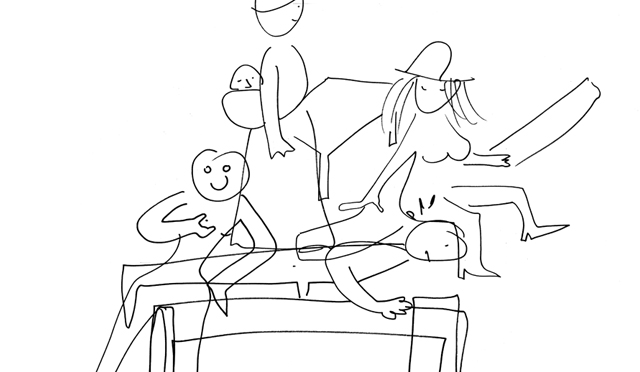Search
To search for an exact match, type the word or phrase you want in quotation marks.
A*DESK has been offering since 2002 contents about criticism and contemporary art. A*DESK has become consolidated thanks to all those who have believed in the project, all those who have followed us, debating, participating and collaborating. Many people have collaborated with A*DESK, and continue to do so. Their efforts, knowledge and belief in the project are what make it grow internationally. At A*DESK we have also generated work for over one hundred professionals in culture, from small collaborations with reviews and classes, to more prolonged and intense collaborations.
At A*DESK we believe in the need for free and universal access to culture and knowledge. We want to carry on being independent, remaining open to more ideas and opinions. If you believe in A*DESK, we need your backing to be able to continue. You can now participate in the project by supporting it. You can choose how much you want to contribute to the project.
You can decide how much you want to bring to the project.

Marc O’Callaghan, Lesseps, Joanic, Virreina, Sol
We are currently witnessing the resurgence of mysticism in contemporary artistic practices. The tarot, horoscopes, pagan rituals and esotericism aren’t new in art. For a few years now, at least since documenta 11 curated by Okwui Enwezor, artists have focused on forms of creation related to magical thinking, producing works that point to ancestral practices and beliefs. Could this interest in rituals and ancestral creeds be a consequence of the globalisation and decentralisation of the art world? Black Light, the current exhibition on show at the Centre de Cultura Contemporània de Barcelona (CCCB) surveyed by Ana Llurba this month, proves that the influence of secret traditions in art goes back a very long way. The exhibition only includes works produced up to the fifties and sidesteps contemporary works, although it does look into a few figures (Aleister Crowley, Rudolf Steiner) who have quite a following among the selected artists. Some people believe that this resurgence of esotericism is connected to the need for transcendence in postmodern societies, that in turn would explain the mistrust in science and the resource to complementary and alternative medicines and individual lifestyles. This is precisely the theme of the work by Ed Fornieles, interviewed by María Muñoz in this issue. Diets designed to improve performance, bio-hacking and new age trends as a way of regaining control of our own bodies? Marc Navarro speaks in similar terms of the work by Oliver Laric, that resorts to esotericism to invoke a universal order capable of dismantling the social, economic and even speciesist system.
Other curatorial projects in Barcelona are also shaped by esotericism. Caterina Almirall puts magical thinking into practice in the show on display until 14 July at Can Felipa, An Exhibition Like A Spell. Almirall talks about her show at La Capella – organised in the framework of BCN Producció – with Irina Mutt, and discusses curatorship as a practice based on the affections and the imagination. These young curators reveal a different outlook on the world in general, and the art world in particular, an outlook halfway between invocations and spells that gives rise to projects of which vulnerability forms an integrative part.

A*DESK is a critical platform focused on publishing, training, experimentation, communication and dissemination in relation to contemporary culture and art, which is defined by transversality. The starting point is contemporary art, because that is where we come from and this awareness allows us to go much further, to incorporate other disciplines and forms of thought in order debate issues that are relevant and urgent for understanding our present.
"A desk is a dangerous place from which to watch the world" (John Le Carré)